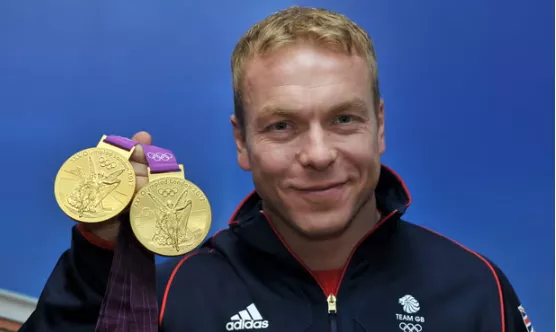In a poignant revelation, Chris Hoy, the celebrated cyclist, recently shared his battle with terminal cancer, garnering both sympathy and admiration for his dignified approach. As he faces the reality of his condition, Hoy possesses two distinct advantages: his exceptional cycling prowess and the knowledge of his prognosis—an estimated four years to live.
This foresight allows Hoy to plan his remaining time thoughtfully. He can create a final bucket list, engage in meaningful projects, nurture relationships, and embark on adventures, from climbing munros to visiting Machu Picchu. Alternatively, he may choose a more hedonistic path, savoring each day and expressing gratitude for the life he has led. While he does not delve into religious beliefs, it seems that for him, life holds inherent meaning.
Reflecting on his situation, the author expresses envy towards Hoy’s clarity. Having undergone a successful cancer treatment, the author recalls a fleeting moment of panic and exhilaration upon receiving their diagnosis—an encounter with the elusive concept of time.
Hoy articulates a universal fear: “The anxiety… comes from trying to predict the future.” Unlike many who face death shrouded in uncertainty, he has been granted precious time for reflection and connection, enabling him to experience “genuine moments of joy.”
The author contemplates how different life might be with such knowledge. The casual enjoyment of daily life can feel thoughtless when juxtaposed with the weight of mortality. Doubts emerge about missed opportunities, unvisited sights, and unexpressed sentiments. The question lingers: What was the purpose of all that time spent without recognition of life’s fragility?
Advancements in science are gradually eroding this uncertainty, allowing deeper insights into genetics, diet, and personal health vulnerabilities. Although many may not fully understand their medical data, it is likely that future developments will provide clearer predictions regarding individual life expectancies. The prospect of algorithms estimating mortality timelines raises complex emotions.
In this context, Hoy’s positivity becomes vital. For countless individuals, the unpredictable nature of death remains one of life’s most challenging aspects. As we approach our final moments, the absence of a predictable timeline can leave us without the chance to say goodbye to loved ones.
Should predictive algorithms become a reality, they could bring a sense of order to an otherwise chaotic experience. In a world increasingly inundated with advertisements for care homes and end-of-life experiences, the idea of “departure counsellors” assisting individuals through their final days may emerge. The wish for a dignified end to life, especially for those facing cognitive decline, could be respected and fulfilled.
Ultimately, the author expresses a desire for the choices that such knowledge could bring—similar to what Hoy has been afforded. The privilege of understanding one’s mortality may be the ultimate expression of freedom, offering clarity and control in the face of life’s most profound uncertainty.
Related topics:
- Cyclist Sir Chris Hoy Announces Terminal Cancer Diagnosis
- Abandoned Bikes at Royal Bournemouth Hospital Donated to Charity
- Plaque Honoring Cycling Pioneer Eileen Sheridan Unveiled

